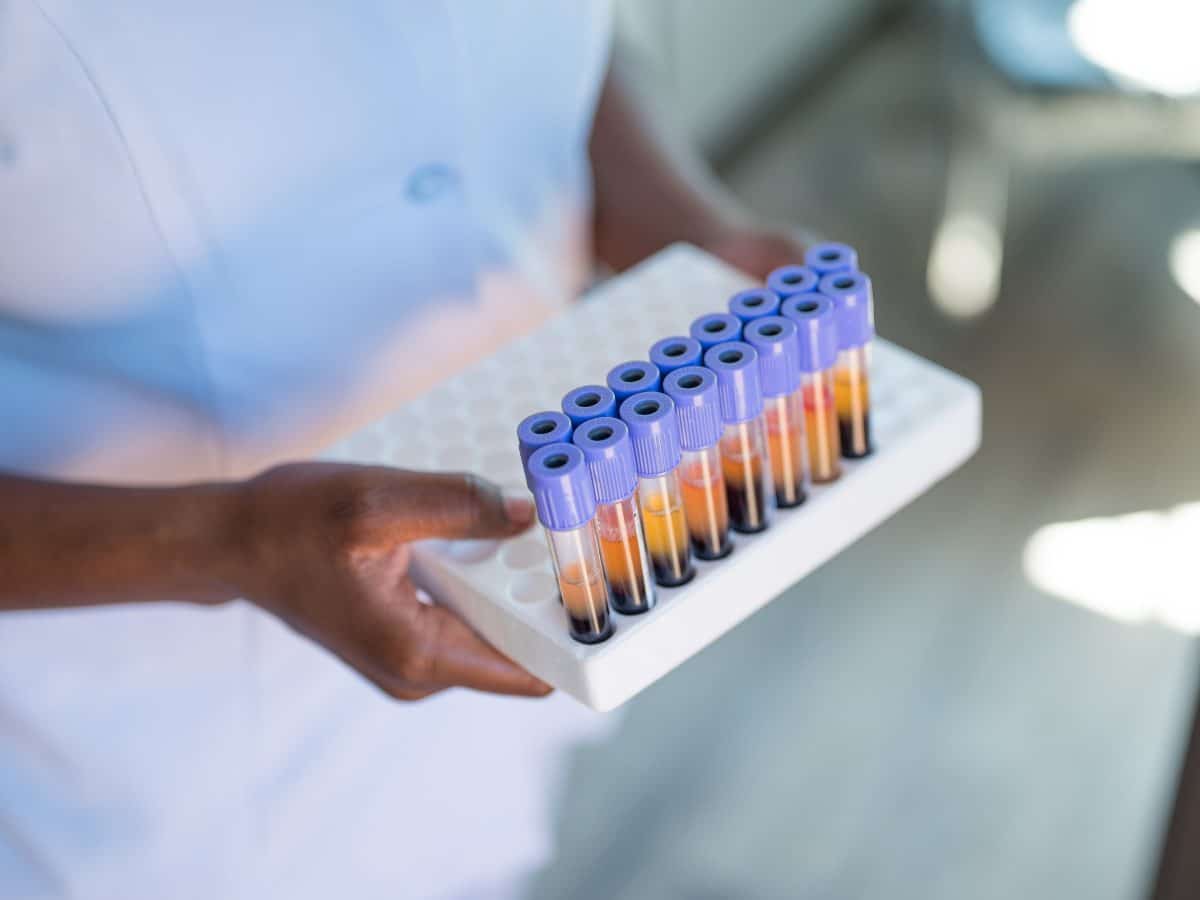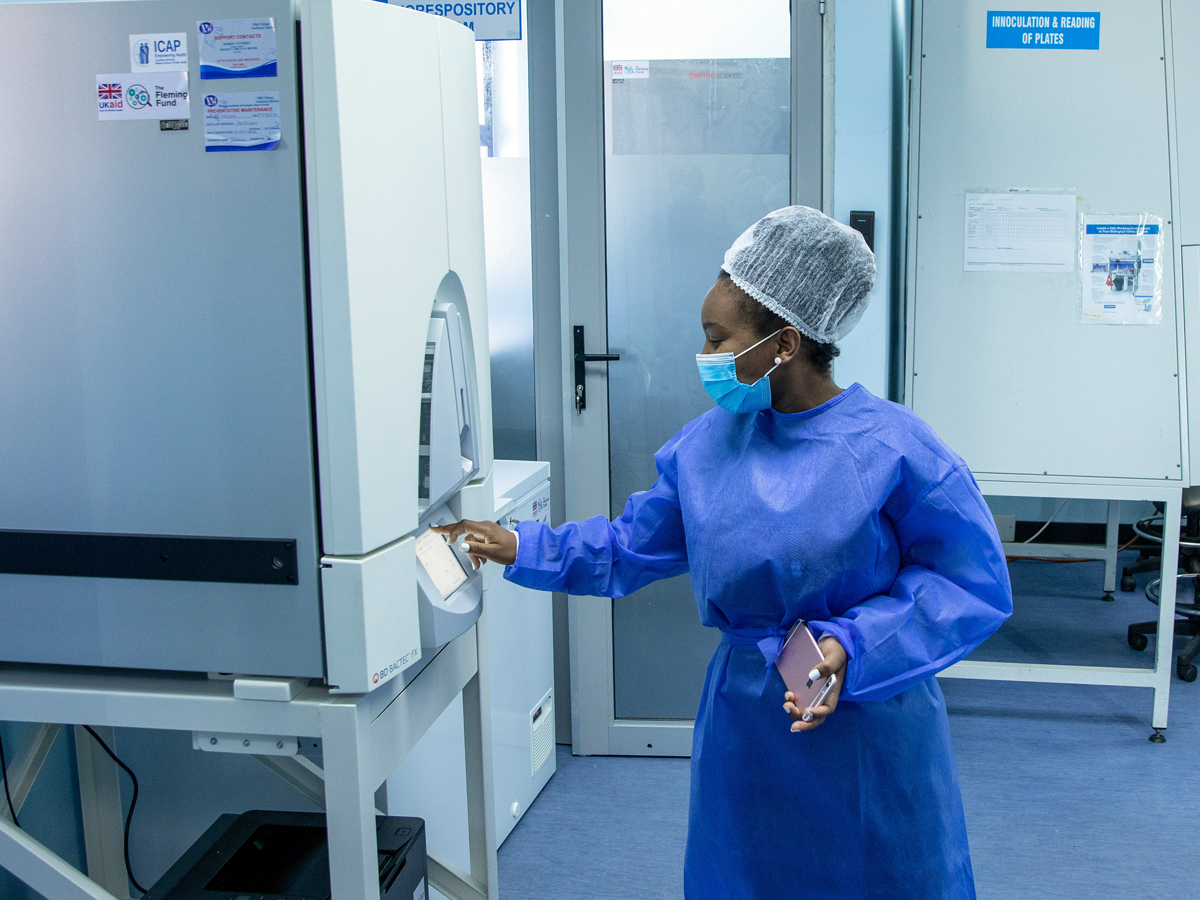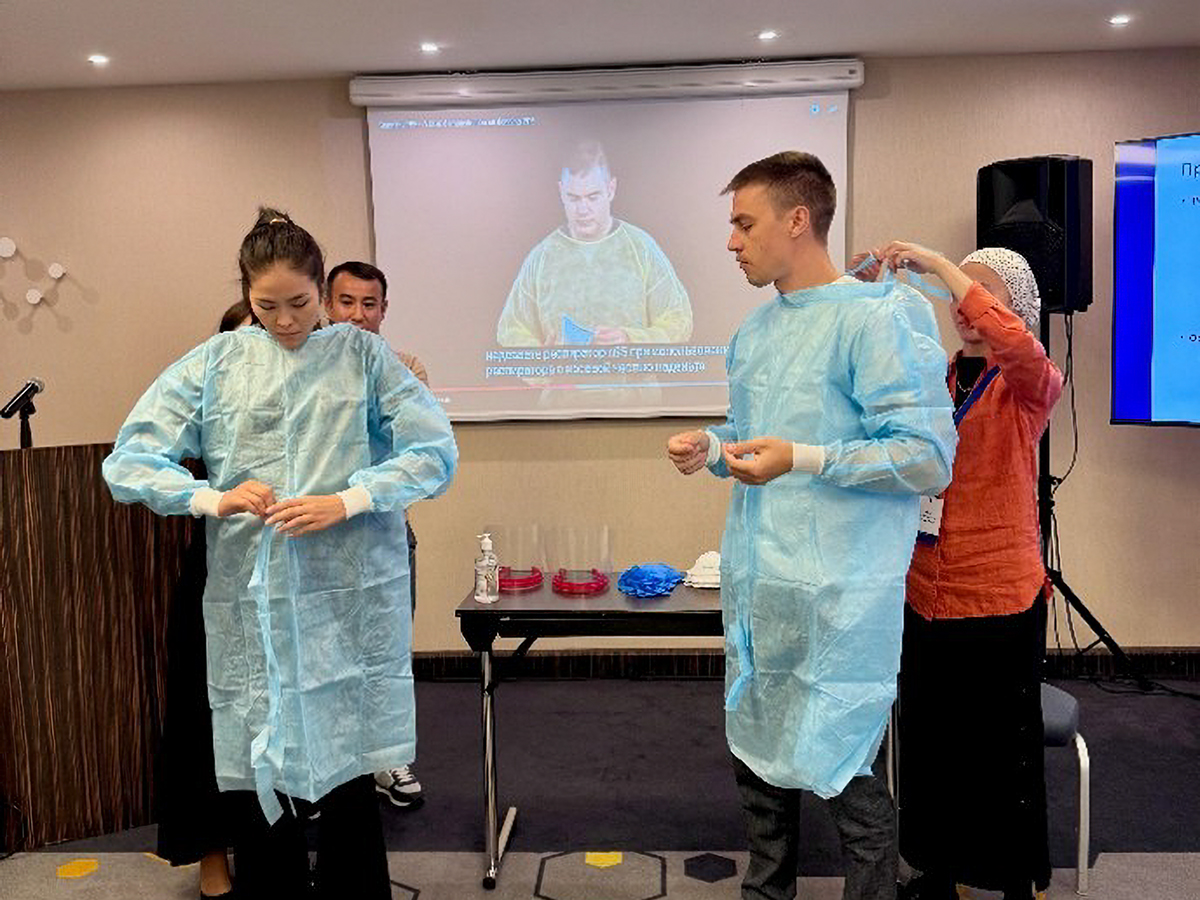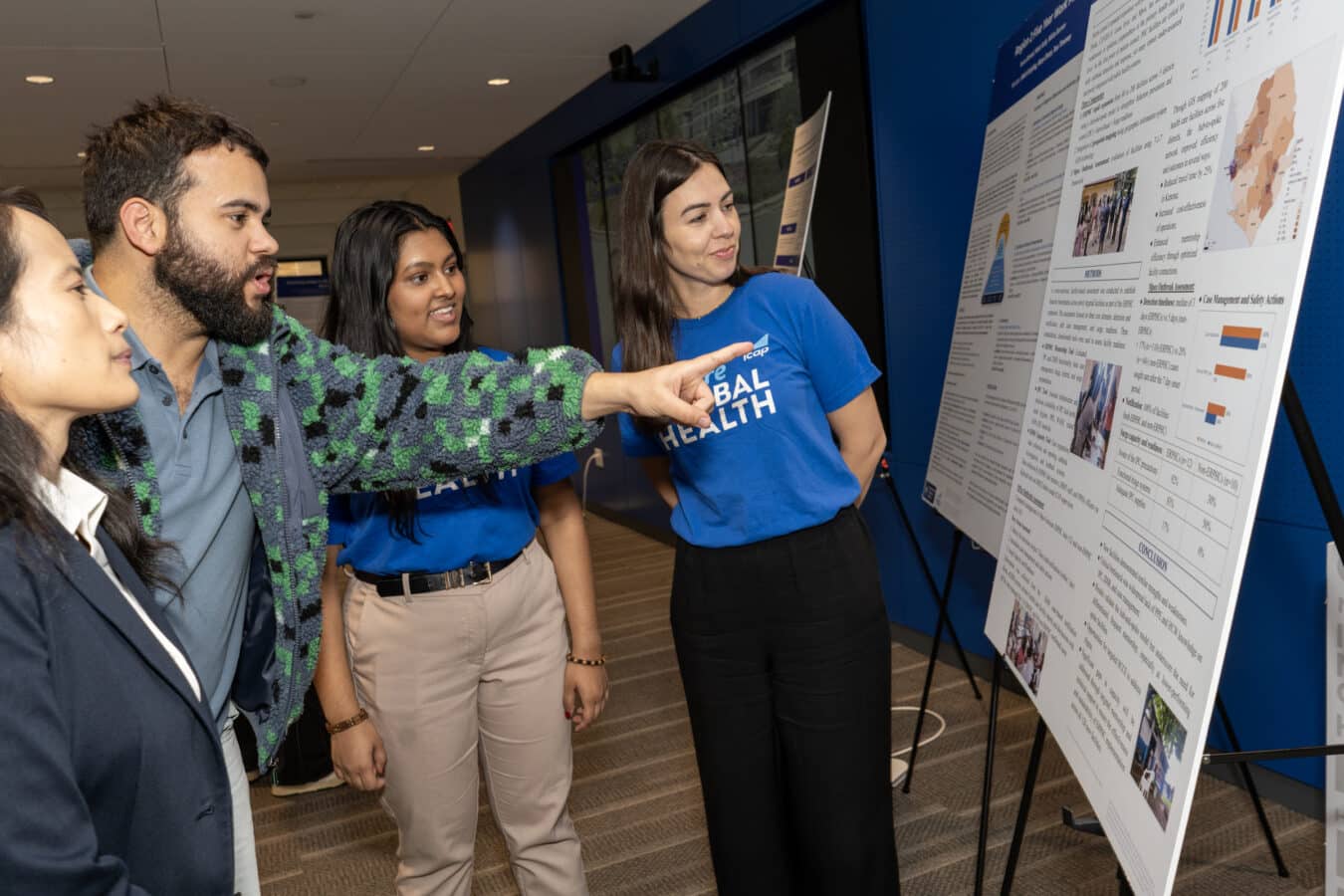An individual is diagnosed with Advanced HIV Disease (AHD) when their CD4 cell count, which plays a vital role in fighting infections, is below 200mm3. Diagnoses are most common in individuals who have interrupted or failed to engage in treatment – people with AHD are at high risk of morbidity and mortality.
Globally, health providers must remain up to date on AHD care and treatment to reduce the time between diagnosis and treatment, and the emergence of fatal opportunistic infections.
Brazil has the highest prevalence of HIV in Latin America. In collaboration with the Brazilian Ministry of Health and the Centers for Disease Control and Prevention (CDC) in Brazil, ICAP developed a comprehensive training course on AHD management beginning in July 2023. Since then, over 10,000 health care professionals in Brazil, from doctors to nurses to administrators, have taken the course. Following the course, participants receive a certificate of completion.
The online course, made available on the Ministry of Health’s online platform AVASUS, trains health providers on early identification of AHD cases, prophylaxis, and rapid screening and management of opportunistic infections, such as tuberculosis, non-tuberculous mycobacteria, histoplasmosis, and cryptococcal disease. Opportunistic infections are a leading cause of severe illness and death among people with AHD.
“The population that develops AHD is highly vulnerable and at risk of death in the first 6 to 12 months,” said Ronaldo Hallal, head of care and treatment in the Ministry of Health’s Department of HIV, AIDS, Tuberculosis, Viral Hepatitis, and Sexually Transmitted Infections. “For this reason, it is necessary that up-to-date and adequate information is presented to the health teams that care for these people, particularly in the context of the introduction of new screening tests – such as the point-of-care tests for tuberculosis and cryptococcosis – as well as new interventions, such as the preemptive treatment of opportunistic infections.”
The objectives and overall design framework of the course were established among the Ministry of Health, ICAP, and CDC. ICAP led development of the course and refined the content and format based on feedback from the ministry, CDC, and a panel of experts. As AHD guidelines are updated in Brazil, ICAP will continue to update the course.
Thousands of positive reviews from course participants about the usefulness of the course are posted online.
“I highly recommend it; great course, very informative,” said one participant. “Super explanatory and illustrative videos help a lot to better understand the topics covered,” said another.
It is estimated that more than four million people have AHD globally, and each year, more than 600,000 of people with AHD are expected to die – fatalities that can be prevented.
“Brazil supports a robust national HIV care and treatment program,” said Erika Fazito, PhD, an ICAP representative in Brazil, “but continued training on AHD will help us to more effectively and efficiently reach an important goal of both engaging individuals on antiretroviral treatment and ensuring they maintain adherence so that we can provide the best health outcomes for our patients.”
About ICAP
A major global health organization that has been improving public health in countries around the world for two decades, ICAP works to transform the health of populations through innovation, science, and global collaboration. Based at Columbia Mailman School of Public Health, ICAP has projects in more than 40 countries, working side-by-side with ministries of health and local governmental, non-governmental, academic, and community partners to confront some of the world’s greatest health challenges. Through evidence-informed programs, meaningful research, tailored technical assistance, effective training and education programs, and rigorous surveillance to measure and evaluate the impact of public health interventions, ICAP aims to realize a global vision of healthy people, empowered communities, and thriving societies. Online at icap.columbia.edu








